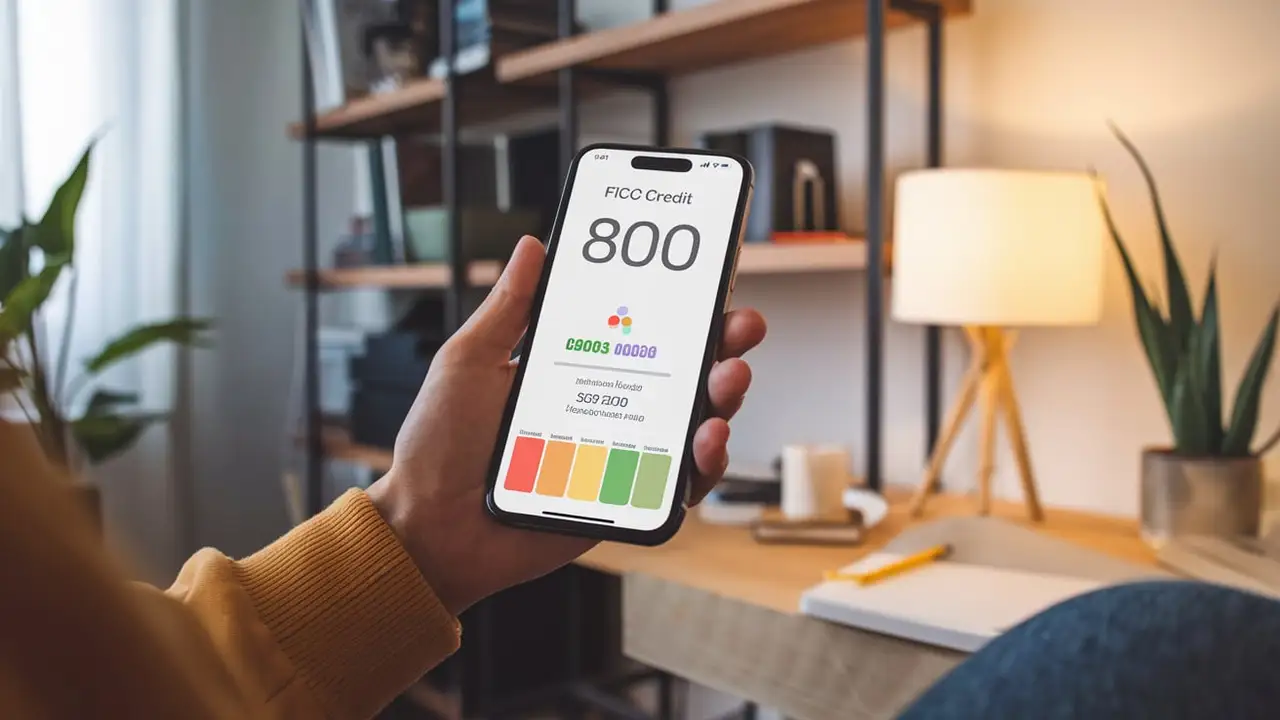-
Posted on: 05 Aug 2024

-
A FICO score is thus a type of credit score used by lenders to assess your creditworthiness and your ability to repay the credit. Credit scores or FICO scores, which is the widely used score, range from 300 to 850, the higher the better. The range between 700 and 749 is generally regarded as good credit, while a FICO score of 800 and above is usually considered excellent credit. But what does it mean to have a healthy FICO score? Here's a breakdown:
Those with FICO scores above 720 are regarded as exceptional. Generally speaking, FICO scores of 720 and above are regarded as good credit ratings. Both here and at a higher level, you should guarantee loan conditions from the lenders and the most beneficial interest rate. Usually regarded as the lowest FICO score that qualifies for the best borrowing terms and conditions is 720. Lenders view you as a very low credit risk when you score in this range or above, hence they can even grant loans and funding without much thought.
Considered good are scores ranging from 670 to 719. Good credit is represented by a FICO score of 670–719, the level just below that. Regarding the credit score, you will still be qualified for fair rates on mortgages, auto loans, credit cards, and other kinds of loans even if you can afford somewhat higher interest rates than those given to persons with outstanding credit records. If your credit is in good shape, approval should not be an issue; nevertheless, you might not be qualified for the lowest qualifying interest rates provided to those with scores higher than 720.
Considered fair are credit scores ranging from 580 to 669. FICO ranges between 580 and 669 suggesting an average credit score. The fair score's interest rates might be somewhat higher, or you would have to make a bigger down payment to be loan-qualified. Financing could be handled under different terms or through extra processes than individuals with either outstanding or exceptional credit scores. You could be expected, for example, to pay a larger down payment, have a better credit score co-signer, or have smaller loan amounts. Still, the candidate should be able to satisfy most standard credit goods.
FICO Scores Below 579 Are Considered Poor Credit over 579 is considered average and above while FICO scores below 580 depict a below-average or poor credit rating. If your score is less than 580 then the available credit choices for you are very limited. Credit scores of below 580 are generally deemed unfavorable for mainstream lenders to extend normal credit services such as loans and credit cards. However, there are subprime lending facilities that are available to those individuals who have a bad credit rating. These loans normally have unfavorable terms such as high interest rates that are considered very high by normal standards. Whenever possible, it is advisable to work to enhance your poor credit rating before seeking more financing.
Understanding the Measures That Define Your FICO Score Your FICO score is not stagnant; it can either increase or decrease depending on your payment history, the amount of credit that you have outstanding, the length of your credit history, the credit mix that you are currently using, and the number of credit inquiries. Thus, one can try to develop good financial behaviors in these aspects to boost and support a favorable credit score in the long run. Specific tips include:
- Pay all bills on time: The credit payment record has the highest percentage of 35% of your FICO score. Even, a single delayed payment for repayment of any loan or credit card bill can affect credit score.
- Keep credit card balances low: Payment history contributes 35% of your score and credit utilization contributes 10% of the score. This means that maintaining a high balance can be detrimental to one’s score.
- Allow credit history to build: Length of credit history is also a component that stands at 15 percent. Let your history develop and stay receptive to this factor to accumulate.
- Use different accounts responsibly: They take 10 percent of an ideal credit mix that consists of credit cards, retail accounts, installment loans, and a mortgage.
- Limit new credit applications: New hard inquiries and accounts are 10 percent. Do not use your credit limit to apply for new credit frequently as this will amount to many hard checks.
The following are some of the ways that will help you understand the importance of having a healthy credit score: Achieving and maintaining a healthy credit score above 700 comes with many advantages when it comes to borrowing money and managing finances, including: Achieving and maintaining a healthy credit score above 700 comes with many advantages when it comes to borrowing money and managing finances, including:
- More favorable loan terms and conditions
- More bargaining power and better credit limits
- Lower security deposits demanded
- Increase in the type of credit products available
- It helps to build financial credibility and trust.
- Getting approval for apartments and jobs becomes much easier.
Whether you have good credit now or bad, it is crucial to build good credit habits and maintain good credit over the long term. To be able to monitor your position it is necessary to monitor your credit reports and FICO scores. That is why, consistent efforts in proper money management will help aim and maintain the FICO scores in the good to excellent range.
Call now for expert credit repair services: (888) 803-7889
Read More:
What is a good FICO score by age?
What is considered a bad FICO score?










